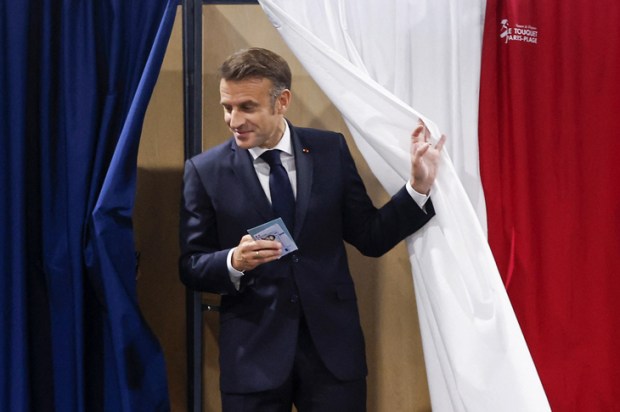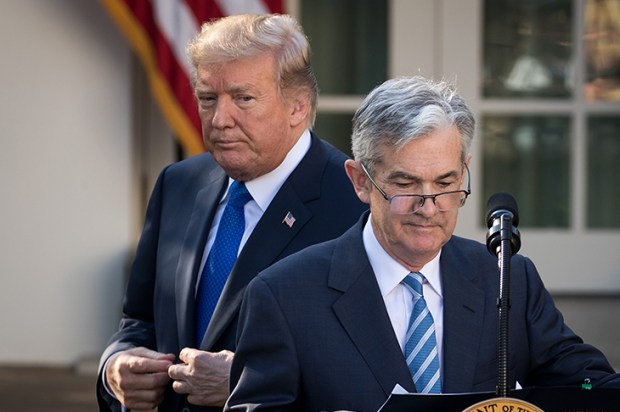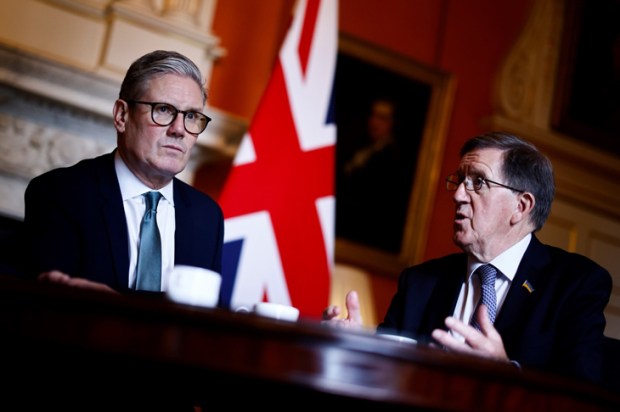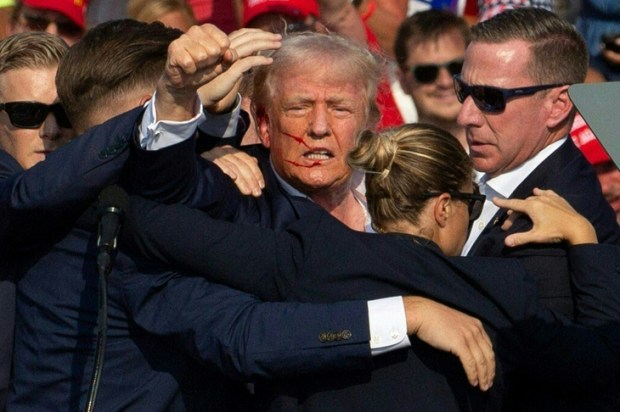Emmanuel Macron, on winning the French presidency against Marine Le Pen in 2017, ordered the EU anthem ‘Ode to Joy’ to be played as he strolled across the Louvre courtyard, ascended a stage and blew kisses to supporters to hail his triumph.
The EU in 1985 selected the melody from Ludwig Van Beethoven’s Symphony No. 9 because it set to music Friedrich von Schiller’s verse from 1785 that expressed an idealistic vision of the human race becoming brothers.
And what European brotherhood Macron had planned. The President, often seen with the blue-and-gold EU flag in the background, sought to cement the euro’s future by buttressing the eurozone’s banking system with a common deposit insurance program and by creating a eurozone budget and bespoke finance minister.
Jump to 30 June just past, when in the first round of the French parliamentary election, Macron’s centrist party crumbled into third spot, Le Pen’s right-wing National Rally party came first and the hastily formed left-wing New Popular Front came second. The second-term President, who in 2022 once again celebrated a victory over Le Pen to ‘Ode to Joy’, only used French flags as props as he spoke.
Any EU flags were in the periphery on 7 July when the New Popular Front, which includes communists, Greens, socialists and the even more radical France Unbowed led by Jean-Luc Mélenchon, achieved a shock victory in the second round of voting without securing a majority. The Macron-cobbled centrist coalition came second. National Rally, which has only ever waved the French flag, unexpectantly dropped to third.
A hung National Assembly opposing a castrated President is a first for the Fifth Republic that was designed to overcome how a dysfunctional parliament dominated a weak presidency during the Fourth Republic from 1946 to 1958. That year, Charles de Gaulle engineered a constitution that created the most powerful head of state in any advanced liberal democracy.
The uncertainty stemming from a neutered pro-business president, the rise of the political extremes, a gridlocked lower house and a spendthrift government could spark a financial crisis that imperils the euro. Investors worry the political uncertainty will harm the French economy and excessive government spending will propel French bond yields to crisis levels. While the likely new government’s plans to boost public spending, revert to a lower retirement age and raise the minimum wage stir concern, the core problem is the sick finances inherited.
On 19 June, the European Commission cited France as among seven countries that risk fines if government finances are not stabilised. Paris posted a fiscal deficit of 5.5 per cent in 2023, which boosted its debt to 110 per cent of output. The EC can penalise countries if budget shortfalls exceed 3 per cent of output and debt tops 60 per cent of GDP. The EC warning came soon after S&P Global Ratings announced the latest downgrade of Paris’s debt rating – in this case, by one notch to AA-, the same as for Estonia.
Any French crisis could be worse than the eurozone debt crisis of 2009 to 2012 for three reasons. One is France is Europe’s second-largest economy – so hard to save. Another is France is essential to the European project – so any ‘Frexit’ is an existential threat to the EU. Third, France fails to meet the conditions set for European Central Bank bond-buying programs designed to lower troublingly high yields – why German Finance Minister Christian Lindner warns any ECB action to shield France raises ‘legal and constitutional’ questions. French government debt has recently traded at 12-year highs of about 80 basis points over German equivalents.
Any threat to the euro is always existential because the currency was born flawed. Rather than design a common currency with the banking and fiscal integration it needed to endure, Europe’s elites saw the euro as a tool to achieve political and fiscal assimilation they couldn’t attain through voter assent. For this reason, the treaties surrounding the euro make its adoption ‘irreversible’.
But the euro’s central weaknesses push users to leave. One defect is that, unlike other fixed-exchange-rate regimes including the gold standard, the euro regime offers no way to resolve member current-account imbalances. Another weakness is members only have fiscal policy and regulatory powers (over, say, labour markets) to fight downturns. To avoid such austerity measures that savage economies, an option for any crisis-torn country is to ditch the euro to reclaim an independent monetary policy and unique currency. Opposition parties in Italy toyed with this option in recent years.
The EU’s existing emergency responses are moored in rescue funds that offer help laced with austerity conditions that bailed-out citizens view as servitude to Brussels and Berlin.
The ECB cannot smother a crisis among any of the 20 euro users because it has limited powers for a central bank – it cannot act as an unconditional lender of last resort for insolvent governments. Only politicians can sanction the decisions needed to rescue governments and protect the euro. Constitutional courts – especially Germany’s – could even limit what lawmakers can do.
The danger for the euro is that Europe’s political cohesion has fragmented. The original eurozone debt crisis when the ‘Troika’ of the EU (Germany), IMF and ECB crushed debtor nations, the refugee crisis of 2015 and beyond, the rise of autocrats in eastern states, the departure of the EU-budget-contributing UK in 2020, squabbles over aid during the pandemic, and the surge of eurosceptic parties in the recent EU elections have reversed the thrust for a united Europe. Perhaps the only cohesive force in the euro’s favour is the damage any euro exit or any default would unleash.
The shelving of EU flags by France’s pro-EU centrists symbolises the lack of will across the eurozone to complete the infrastructure a monetary union needs to last. If not France, it’s inevitable that some other crisis will shatter the eurozone and shake the global economy.
Now, the EU and euro have proved resilient. Come a denouement, no one can rule out EU leaders taking the steps required to cement the euro’s future. But the politics in the creditor countries such as Germany and the state of their economies mean they might lack the political will and – more to the point – might not be able to afford to rescue the euro.
Europhiles might still dream of ‘Ode to Joy’ brotherhood. But unsustainable government debt means that one day they will most likely kiss goodbye the eurozone as it stands today.
Got something to add? Join the discussion and comment below.
You might disagree with half of it, but you’ll enjoy reading all of it. Try your first month for free, then just $2 a week for the remainder of your first year.













